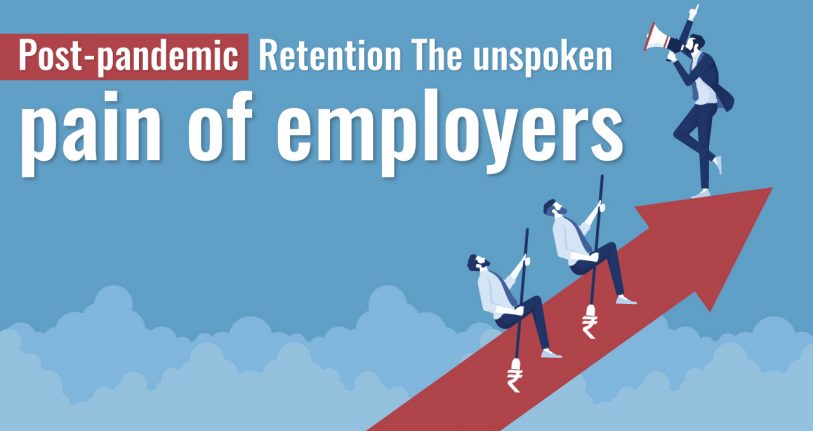An Ideal Corporate Culture Brings Positivity

The existence of human beings is justified by the trait they carry along with them. Every country is different from the other one which makes them different is their culture. Culture is a combination of the behaviours, beliefs, values, and symbols which is followed by a group of people without analysing it and passing the same combination to their next generations.
According to Frances Frei and Anne Morriss at Harvard Business Review:
“Culture guides discretionary behaviour and it picks up where the employee handbook leaves off. Culture tells us how to respond to an unprecedented service request. It tells us whether to risk telling our bosses about our new ideas, and whether to surface or hide problems. Employees make hundreds of decisions on their own every day, and culture is our guide. Culture tells us what to do when the CEO isn’t in the room, which is, of course, most of the time.”
After a certain age at some particular time, everyone needs to earn for their livelihood, different people work together for something common they want to achieve and to fulfill their objective the culture of the organization is something that influences and helps out moreover. Culture has always been influential, but today, it’s becoming more than just a lingo. It is a necessity to differentiate your company apart from the competition. It’s furthermore what entices the righteous talent and leads in the right clients.
Warren Buffett said, “It takes 20 years to build a reputation and five minutes to ruin it.” Many organizations scuffle to develop an indelible and magnetic workplace culture, and it’s no wonder. Culture is delicate to elucidate and takes time and endeavour to build. Some certain beliefs and behaviours regulate how should the employees and management interact and take care of external deal and this can be termed as Corporate communication. Examples of Ideal company are Publix, Southwest Airlines, Salesforce.
Corporate Culture is a tough job to carry on, so to make it undemanding there are certain elements that make the culture relatable to an organization.
For being competitive in the market and to assure the success of the business, the company should be aware of the importance of well-built workplace culture, and also how to develop one. To have an ideal company culture this is the basic elements that should be the part of the organization in the form of culture.
Those elements can be classified as:

1. Leadership : A company can earn if the owner is the only leader but if you want to see the growth and success of the company every employee should be a leader. Every single employee of the company should think of themselves as an owner in terms of work and take an initiative to lead and take the upcoming challenges.
2. Communication: A transparent communication where everyone has the right to communicate plays an indispensable role to create a strong culture on which others can trust. Employers and employees should get into conversations in which they talk about their beliefs, values so that others can get an understanding of your culture and why it holds some value in your life.
3. Listening:One-way conversation can not be considered as communication. Every employee feels positive and enthusiastic when their feedback is considered as important and their likes and dislikes are taken into account. This helps in maintaining the transparency between the employer and the employee.
4. Radical truth and transparency: Understanding what is true is crucial for success, and being radically transparent about every single thing, including mistakes and weaknesses, it helps to generate the understanding that results in change for the better. Being radically truthful and transparent with your co-workers and anticipating them to be the same with you ensures that necessary affair is apparent instead of hidden. It also enforces good conduct and good thinking, because when you have to give an explanation for yourself, everyone can openly assess the merits of your logic.
5. Dedication: Entrepreneur should analyze how culture can be useful for his business and what kind of culture can be useful, then try to implement that plan into action. Planning is helpful but dedication is something that grows and nurtures your planning into action.
6. Engage for cultural pertinent: Engagement with the complete description of company culture describes “how people go through the way things work in the organization.” It is a course of action to set out to employees’ level of obligation towards the company and their work. It also includes a celebration of different festivals, events, and functions together as a family.
A 2005 study showed strong culture engagement can result in greater job contentment, stronger togetherness with a company, longer tenancy, more dedication, and superior performance. Begin by explaining the key principles of your organizational culture. Then merge these criteria into your employer brand messaging, employment content and interview procedure.
Having a culture in the organization is not enough there is a need to design a road Map for company Culture Success. There are certain points to justify it.
Visualize an ideal company culture is skillful and upright, but without a functional road map, demanding to put the firm domain you’ve conceptualised into place will leave you stabbing in the black. It is just the same as running a business without any planning.
According to this 2016 McKinsey & Company report, 70 percent of all company change initiatives end in bitter failure. The reason that many of those attempts don’t produce results comes down to their neglect to establish and communicate real direction. To help ensure that your organization doesn’t join their ranks, you need to make a plan and commit to it.

This roadmap shall response to the leading querries surrounding the affair at the back of your workplace culture initiative. How will you utilize your innovative ideal culture to the other staff of your organisation? Which are the substantial provocation to positive cultural extension, and what is the most major piece of work to acknowledge and reward? What is the breakthrough for your company’s culture blueprint, and who is going to brace their accomplishments? These sectors are evaluative for all culture-restrained business to contemplate, agree upon, and address as an entire.
Research says satisfied and happy employees turn out to be more productive. Let’s understand it.
1. Get underway to heed and continue to be attentive
Job holder who aspires to be cheerful and good for one at jobs are optimistic about their organization that they are concerned enough to put a question to get feedback consistently. Proceeds constant measurements of workplace frame of mind and what (de)motivates employees in the corporation, is superior to just a yearly analysis (whether it is a performance criticism or employee gratification look over). Research detection fiercely assists this feeling.
But also in implementation, a constant response kink with employees comes into sight to authorize managers to acknowledge to ‘person trouble’ instantly, to understand the influence of their solutions and to keep an eye on the everlasting trend. So why are we not taking these protective measures?
Research facts
- An employee whose opinion is heard at the company is 4.6 times more likely to give his foremost performance (Salesforce Research, 2017)
- According to 92% of employees, an exhibit of empathy is necessary for staff retention (Businessolver, 2019)

2. Employee Satisfaction present success, lay the foundation to take it solemnly
There are numerous studies over the past 20 years signifying the association between happy and tied up employees and constructive financial business outcomes. Fairly influential, however, is that contented employees also convert other benefits such as more turnover, larger innovation, decrease in absenteeism, fewer burnouts, better customer involvement, and a greater employer stature.
Research facts
- Business with engaged workers pull in 2.5 times more earnings compared to competitors with fewer engagement levels (Hay Group)
- Organizations with satisfied and engaged employees release a 31% increase in efficiency and a 37% extension in sales growth (Shawn Achor, 2011)
But why is corporate culture is emphasised as a major part of an organisation? Take a look at some of the advantages of company culture:

Recruitment: Many HR professionals see eye to eye that well-built company culture is one of the leading methods to tempt potential employees. A positive culture provides a business with a competitive benefit. Individuals are willing to work for companies with a high standard reputation from old and present-day employees. An organisation with a constructive culture will allure the variety of talent that is inclined to make their next enterprise a home, rather than just a stepping-stone.
Employee allegiance: A positive culture does not help only in recruitment efforts, it will also assist in retaining top talent as well. A practical culture encourages a sense of loyalty in employees. Employees are much more likely to work with their present employer when they sense they are treated fair and then they are willing to work every day efficiently.
Job contentment: There is no surprise that job gratification is higher at companies with attractive workplace culture. Employers who put money into the welfare of their employees will be rewarded with happy, committed employees.
Collaboration: Employees are much more likely to come together as a team in the workplace with a powerful culture. A positive culture simplifies social interconnection, teamwork, and free communication. This alliance can lead to surprising outcomes.
Work performance: Business and culture have been associated with higher rates of productiveness. The reason behind it is that employees are inclined to be more prompt and dedicated to employers who invest in their welfare, comfort, and satisfaction.
Employee self-esteem: Creating and maintaining a positive culture is a guaranteed way to raise employee morale. They will, of course, feel happier and be fond of their task more when they working in a positive environment.
Less density: A positive company culture will assist significantly to lessen business pressure. Companies with a strong workplace culture tend to have less stressed workers, which helps uplift both employee physical and mental health and work performance.
Conclusion
One of the most evident characters a leader possesses is to fabricate a positive culture. Be certain to pursue a positive culture that intensifies the skill, diversity, and satisfaction of your human resources. Constructing a distinctive, positive culture is one of the pre-eminent – and effortless– processes to make your employees utilize their skills, talent and ahead times with your company. Culture can determine performance or non- performance in the course of change in the organisation.



